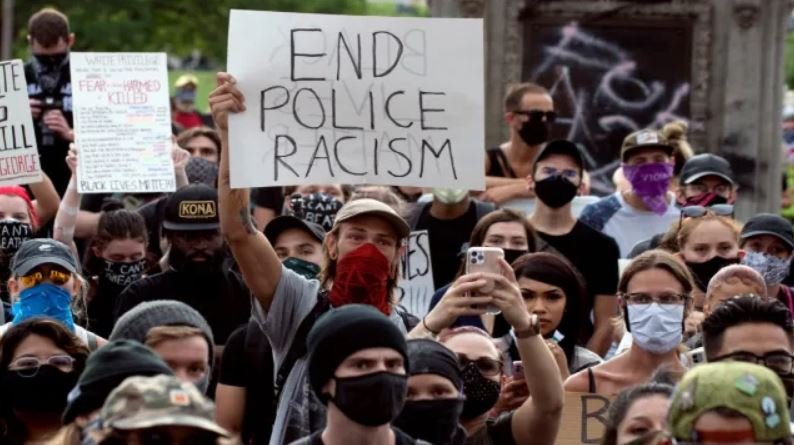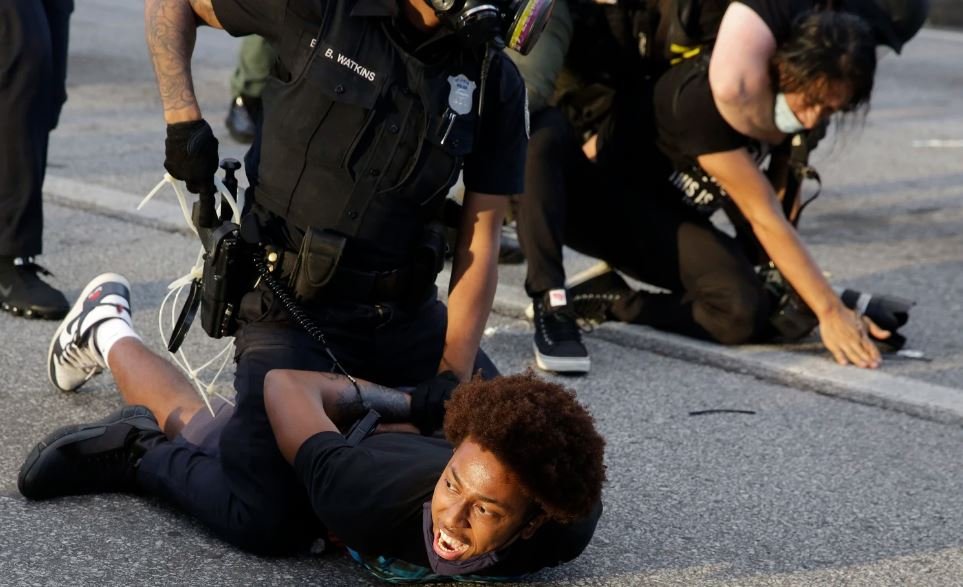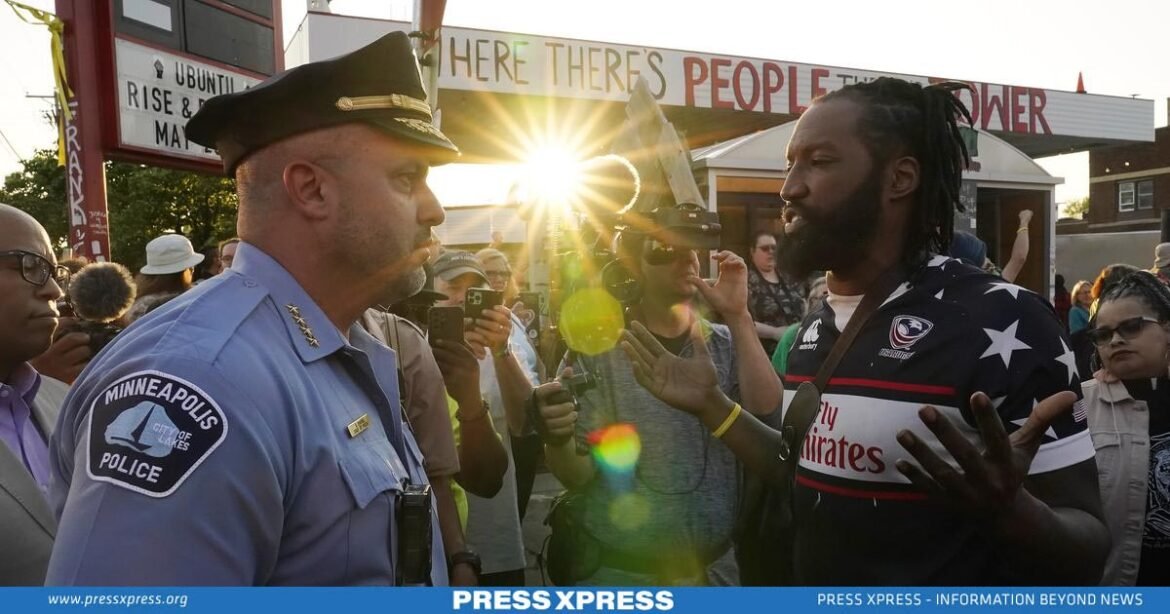The Human Rights Council of the United Nations has issued a resounding call to action, stating unequivocally that systemic racism deeply entrenched within America’s police forces and criminal justice system demands urgent reform. This climactic declaration comes in the wake of the Mechanism’s official visit to the United States earlier this year. The report was published by the UN International Independent Expert Mechanism to Advance Racial Justice and Equality in the Context of Law Enforcement on 28th September.
During the visit, it conducted a comprehensive examination of the issue, gathering testimonies from 133 affected individuals. It also inspected five detention centers and engaged in crucial discussions with civil society organizations, government officials, and law enforcement authorities across key cities, including the District of Columbia, Atlanta, Los Angeles, Chicago, Minneapolis, and New York City.
A system with a 1% chance of accountability
“In all the cities we went to, we heard dozens of heart-wrenching testimonies detailing the agonizing reality. These realities say victims are denied justice or any semblance of redress. This is not a novel revelation; it is an intolerable travesty”, expressed Tracie Keesee, an expert member of the report committee.
“This is a systemic malaise that demands a systemic response. All stakeholders, including police departments and police unions, must unite in unwavering determination to combat the rampant impunity that perpetuates these grave injustices”, she added.
The report lays bare the stark truth that racism is deeply rooted in America’s history—stemming from the harrowing legacies of slavery, the slave trade, and a century of legalized apartheid following the abolition of slavery. All these cast an enduring shadow of the shackles of racism over the present. It manifests itself in the insidious forms of racial profiling, fatal encounters with law enforcement, and a litany of human rights transgressions.
Startlingly, the report reveals that African-American individuals in America are confronted with a chilling statistic: they are three times more likely to fall victim to police violence than their white counterparts. Further, they stagger 4.5 times more likely to be ensnared in the labyrinthine web of incarceration. It lays bare the grievous reality that out of the more than 1,000 cases of police-involved killings each year, a minuscule 1% leads to officers facing charges.

Senseless killings to persist without comprehensive reforms
With unwavering conviction, the report sends an ominous warning: unless there are comprehensive reforms aligning the use of force regulations with international standards, the grim specter of these senseless killings shall persist unabated.
“We vehemently reject the ‘bad apple’ theory,” declared Juan Mendez, an esteemed member of the Mechanism. Mendez firmly dispelled any notion that the abusive conduct of certain police officers can be attributed to isolated incidents.
“Compelling evidence points to a disconcerting reality: the abusive behavior of some individual police officers is a cog within a more expansive and menacing machinery,” Mendez asserted. “Law enforcement and the institutions of the criminal justice system in the United States mirror and perpetuate the values, attitudes, and stereotypes pervasive in U.S. society and institutions. It is imperative that they undergo a profound transformation.”
The report issues a clarion call, advocating that the reflexive dispatch of armed police officers as the default first responders to address a myriad of social issues in the U.S. Ranges from mental health crises to homelessness, and from traffic control to school discipline these must undergo a fundamental shift towards alternative, more appropriate responses.
“In our dialogues with police officers, a recurring concern emerged—a concern not only about the toll exacted by work overload but also the corrosive effects of racism and racial discrimination within police departments,” shared Keesee.
“The expectation that law enforcement officers safeguard and uphold human rights necessitates an underpinning culture of respect and well-being within the ranks.”
The report issues a stern mandate to police agencies. It compels them to confront the issues of systemic racism afflicting Black law enforcement officers and the troubling presence of white supremacy ideology within these institutions.
The scandalous reality of modern-day slavery in prisons
With a heavy heart, the report chronicles deeply troubling instances, including the sentencing of children of African descent to life imprisonment. It further added the inhumane practice of chaining pregnant women during childbirth within prison walls and the cruel isolation endured by individuals for a decade in solitary confinement.
Furthermore, it exposes the shocking reality of some people of African descent being deprived of their voting rights years after completing their sentences and subjected to forced labor in prisons. This occurrence is reminiscent of a dark era in history—a contemporary manifestation of slavery.
The Mechanism is resolute in its condemnation. It not only decries the excessive reliance on incarceration and criminal supervision in the U.S. but also deplores the egregious overrepresentation of people of African descent within the labyrinthine corridors of the criminal justice system. The climax of this report is a thunderous call for sweeping change, a demand for justice, equality, and the restoration of human dignity that resonates with urgency and moral imperative.
“The testimonies we’ve gathered and the stark figures we’ve unearthed expose the darkest underbelly of a deeply racist criminal justice system. This is the kind of a system that corrodes and undermines every endeavour to confront systemic racism,” Mendez emphasized, his words carrying the weight of undeniable truth. “Our findings serve as a clarion call, underscoring the imperative for far-reaching reform.”

30 Recommendations for a Just Society
In a pivotal moment, the report presents a comprehensive blueprint for change, offering a total of 30 meticulously crafted recommendations directed at the United States and all its jurisdictions. It encompasses the vast network of over 18,000 police agencies nationwide. Simultaneously, it shines a spotlight on commendable practices at both the local and federal levels, acknowledging the earnest efforts undertaken by the current administration and certain local governments to combat this pressing issue.
“We fervently urge the replication of these commendable practices across the nation,” Mendez stressed, extending an olive branch of collaboration. “We eagerly anticipate further cooperation with the United States in the relentless pursuit of implementing these recommendations. This will, in turn, forge a path towards a more just, equitable, and harmonious society for all.”
The US government itself is a vocal champion of Human Rights outside its borders with mechanisms like the Magnitsky Act and the sanctions that it entails. The report by UNHRC is a stark reminder of extensive human rights violations by law enforcement agencies in the United States.


